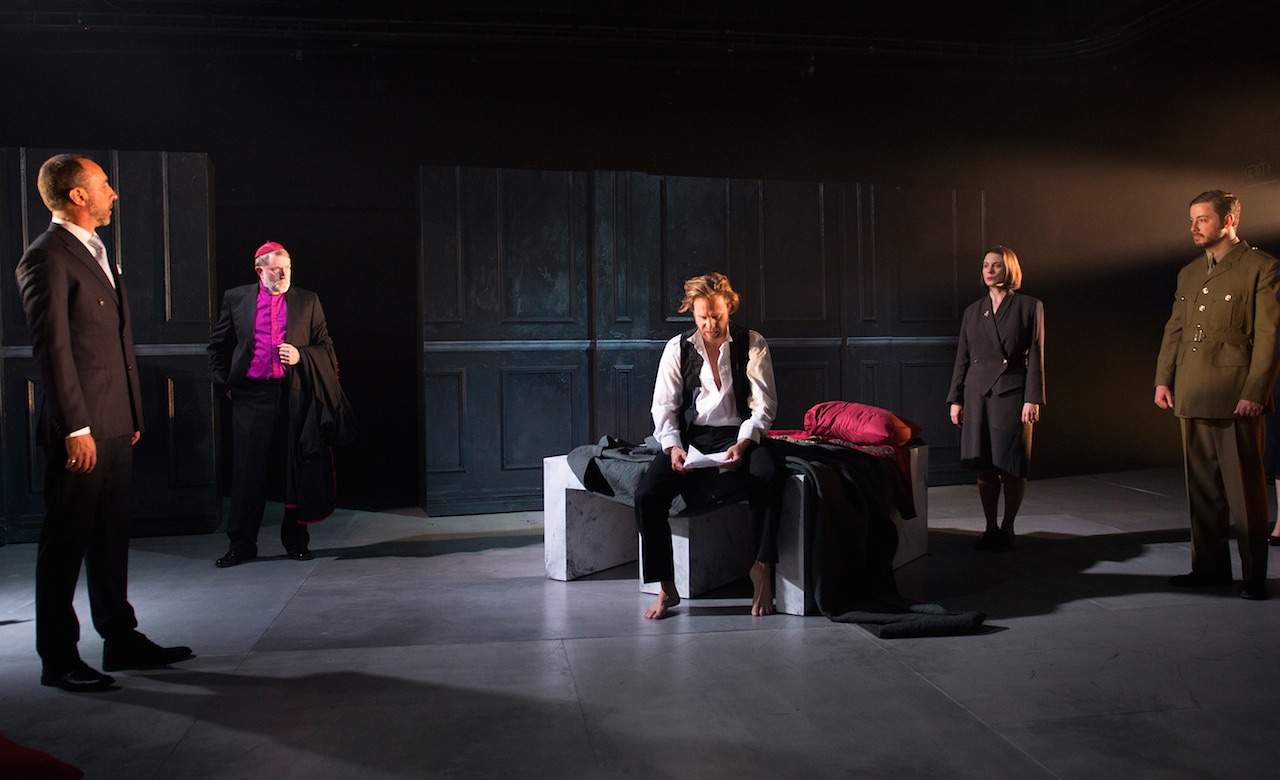Edward II - Sport for Jove
Being born to greatness doesn't mean you're up to the task.
Overview
There’s death, leaping and sword-brandishing aplenty, but it takes more than that to coax a reluctant king back onstage.
Edward II is not a monarch particularly revered by history. Sandwiched between Edwards I and III, both admired in their own right, Edward II was a man undeniably born to greatness. Upon his ascension to the throne, however, he ruled as one who had had it thrust upon him and, moreover, did not particularly warm to the task.
Unfortunately, something similar might be said of Sport for Jove’s latest offering, directed by Terry Karabelas. This ensemble definitely mean business but are unable at crucial moments to wring the gravitas or complexity from their characters that the play demands.
When Edward ascends the throne, England is at a precarious point in its history. Wales is recently conquered, the Scots continue to resist conquest and the French, though dormant of late, are always a decent chance of popping in for a skirmish. Nevertheless, Edward makes clear, much to the dismay of his advisors, that his royal priorities lie much closer to home, more specifically in the region of his pants.
Edward’s first order of business is returning his exiled lover, Piers Gaveston, to court. From there, Edward eschews his office in order to engage in a thoroughly adolescent affair while England goes to pot and his scandalised coterie gossip and scheme. Virtually everyone meets a sticky end.
Christopher Marlowe — with a script as full of historical omissions, conflations and embellishments as any of Hollywood’s dalliances with history — gives Edward a proper flogging over the two-hour duration. This Edward is a lacklustre shirker, unable to govern his own desire, let alone a fledgling empire at war. Julian Garner captures this quality but has difficulty managing Edward’s descent into abject despair. James Lugton’s Mortimer and Georgia Adamson’s Isabella are a solid duo throughout — the former gravely hopping over a few corpses on his way to the top, the latter a spurned queen who turns to Mortimer for love but ends up clinging to him for power.
A moody lighting design by Ross Graham and sound by David Stalley frequently get the wobblier scenes over the line. Cold and warm lighting are used very effectively in establishing significant location changes, from a chilly morning at the docks to a candlelit convent. Strains of choral music that drift from the medieval murk imbue the work with a sense of sadness and portent, while the soundscapes of battle and cannon attacks evoke an urgency and fear that seem to be largely lacking in the performances.
Karabelas’s direction produces some great moments; Isabella’s refusal to accept the candle that Edward offers her at his coronation nicely foreshadows their marital problems, while Gaveston chancing a kiss with Isabella in the corridors feels quite spontaneous and real.
Ultimately, though, Edward II feels like it needs more room to breathe. There is epic tragedy to be had here, but death and mourning, love and treachery all whizz past in what I suspect is an effort to keep the duration to two hours.





